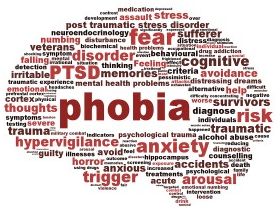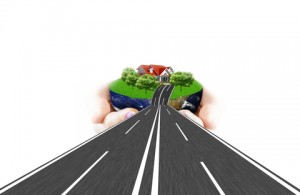
We live in an era where there are numerous new phobias every year which attract ridicule and bewilderment in equal measures. That said, Nomophobia, a fear of being without a mobile device or mobile phone contact is real and a growing problem. Do you ever fear being without your mobile phone? Do you begin to panic if there is no mobile phone signal? Be honest, there are many of us out there……
Who does Nomophobia affect most?
A survey by the UK Post Office back in 2010 actually created the term Nomophobia as a fear of being without a mobile device or a mobile phone signal. The survey took in more than 2100 people and produced some very interesting results. He is a snapshot of the study:-
• A staggering 53% of all mobile phone users in the UK admitted to being anxious when they “lose their mobile, run out of battery or credit, or have no network coverage”
• 58% of men suffer from Nomophobia
• 47% of women suffer from Nomophobia
• 55% of those surveyed use their mobile device mainly to keep in touch with family and friends
• The stress associated with Nomophobia was compared to “wedding day jitters” and the stereotypical fear of going to the dentist
This gives you a snapshot of the UK but now let’s take a look at the US where it looks as if Nomophobia is an even bigger problem! In the US:-
• 65% admitted to sleeping with or next to their smart phones at night time
• 34% admitted to using their phone during “romantic” time with their partner
• 20% of those surveyed in the US would rather go without shoes for a week than give up their mobile phone for seven days
• More than 50% of mobile phone users in the US never switch off their device
• All in all, 66% of those serving in the US suffer from Nomophobia
On the surface there seems to be a growing problem in the US with regards to Nomophobia but this is a worldwide problem and one which is likely to get worse before it gets better.
Is your mobile device your comfort blanket?
Let’s face it, a mobile phone today is not just a mobile phone as it can do an array of different things such as:-
• Voice to voice calls
• Video calls
• Keep up with social media
• Instant messaging
• Swapping photographs
• Texting
• Using the Internet
• Photography
• Video
• Alarm clock
• Calculator
• Word processor
• Emails
In reality this is just a snapshot of what the average mobile phone can do these days which is like comparing apples and pears when considering early phones from the 1980s.
As a consequence, many people are dependent upon their mobile phones for an array of everyday actions and when their phone is not by their side or there is no signal they can become very agitated. One expert hit this on the head perfectly; technology should be a servant not a master!
What are the symptoms of Nomophobia?
There are many different symptoms with regards to Nomophobia and while you are unlikely to experience all of the symptoms, you may well experience a few of them. Believe it or not, some of the more common symptoms reported by those suffering from Nomophobia include:-
• Separation anxiety
• Increased heart rate
• High blood pressure
• Shortness of breath
• Nausea
• Trembling
• Dizziness
• Depression
• Discomfort
• Fear
• Panic
If you have a mobile phone which you use on a regular basis the chances are that you have experienced some of the above symptoms at some point in your life. Maybe you have left your mobile phone at home when going to work, maybe your mobile phone has been stolen or you might have cracked the screen and you can’t use it. Does even the thought of reading about these scenarios get you panicking and on edge?
Your life on your mobile phone
Unfortunately, such is the huge breadth of activities you can undertake with your mobile phone that to all intents and purposes it holds a footprint of your life. You may have your banking apps, your passwords, all of your contacts, confidential work emails, photographs and an array of information you would not wish to fall into anyone else’s hands. In the past we have seen celebrities storing intimate photographs on their mobile devices only for them to be hacked or stolen and these images made public. It is also worth noting that the vast majority of people still do not add a password to their mobile device thinking that “it will never happen to me”. Make sure your mobile phone has a password!
If your phone does have a password then even if it is stolen, or genuinely goes missing, nobody can hack into your private information. They can’t withdraw funds from your bank account, access your password file or send random images and messages to your contacts. You will still likely feel anxious if you lose your phone but if there is a password then at least nobody else can use it.
How to tackle Nomophobia
There are numerous ways in which you can at least attempt to balance the use of mobile devices and face-to-face contact. Here are some simple techniques to reduce your dependence on your mobile device and learn to live a more “traditional” lifestyle:-
• At some point in the day switch off your mobile device so you can have face-to-face time
• Every hour you spend on your phone should be matched by face-to-face chats with your friends and family
• If possible try a “mobile phone fast” for one day a month where you don’t use your mobile device – it would be hard, we know!
• When sleeping ensure your mobile device is at least 15 feet from you so it is not “to hand”
• Give yourself phone free times during the day allowing you to concentrate on work, family, friends and socialising
Sometimes it is useful to take a step back and look at overuse of mobile devices in various scenarios. Imagine, you are out with your friends and family having a good time but all you can do is play on your mobile phone, text and message other people. This is rude beyond the pale – you wouldn’t expect anybody to do it to you so why do it to them?
Conclusion
Nomophobia is a real and growing problem especially as we now depend on our mobile devices more and more. From simple voice calls to text messages, photographs to the Internet, ordering food to dating, there is nothing you can’t do on your mobile device today. However, it is dangerous to have your life on a mobile device and it is dangerous to be over dependent. It can and does induce physical and mental struggles for many people when in reality your friends, family, work colleagues and career should be your main focus. Why not try a day without your mobile phone? Show yourself that you can beat Nomophobia……






